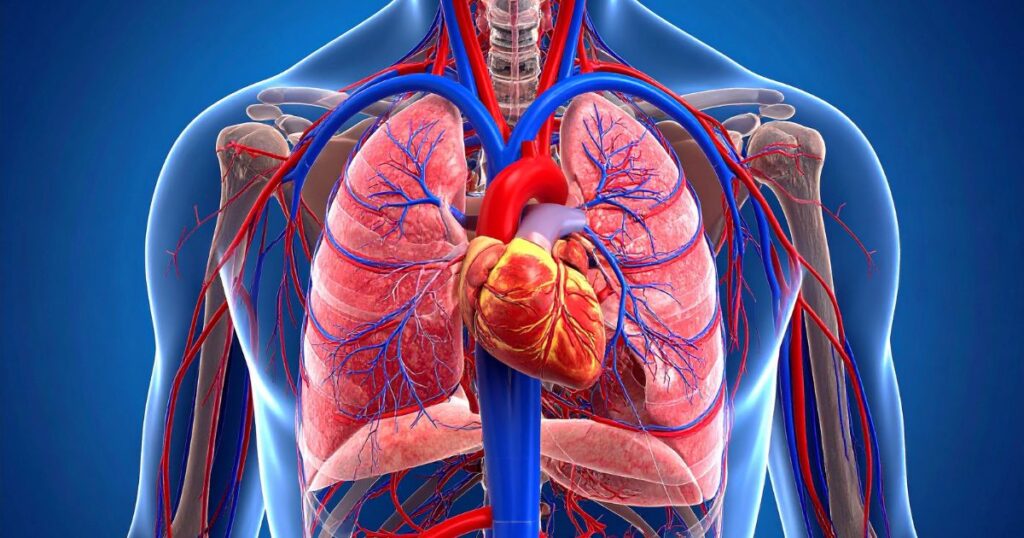Lymphedema is a condition that affects the lymphatic system, leading to swelling in the body. While most people associate it with physical discomfort, few realize how it can impact other aspects of health, particularly the cardiovascular system. This article explores the connection between lymphedema and cardiovascular health, providing insights into how the condition can affect your heart and blood vessels. Understanding this connection is crucial for managing lymphedema and preventing potential cardiovascular complications.
Definition of Lymphedema
Lymphedema is where excess lymph fluid accumulates in tissues, causing swelling, most commonly in the arms or legs. The lymphatic system, responsible for draining waste and maintaining fluid balance in the body, becomes compromised, leading to fluid retention. Lymphedema can develop in people who have experienced damage to their lymphatic system or have congenital issues that impair its function.
Overview of Cardiovascular Health
Cardiovascular health refers to the well-being of your heart and blood vessels, which circulate blood throughout your body. Healthy cardiovascular function is vital for maintaining energy levels, delivering oxygen to tissues, and efficiently removing waste products. The cardiovascular system includes the heart, arteries, veins, and capillaries. Maintaining a healthy heart and circulatory system is essential for overall well-being, as cardiovascular diseases can lead to serious complications such as heart attacks, stroke, and high blood pressure.
Importance of Understanding the Connection Between Lymphedema and Cardiovascular Health
Understanding the relationship between lymphedema and cardiovascular health is essential for prevention and treatment. The buildup of lymph fluid caused by lymphedema can strain the cardiovascular system, leading to complications such as increased heart strain or poor circulation. Recognizing this connection can help individuals manage both conditions more effectively and prevent long-term health risks.
Understanding Lymphedema
Causes and Types of Lymphedema
Lymphedema can be categorized into two main types: primary and secondary lymphedema.
- Primary Lymphedema
- Primary lymphedema is often a hereditary condition that occurs when the lymphatic system doesn’t develop properly. This type is rarer and may appear at birth or during puberty.
- Secondary Lymphedema
- Secondary lymphedema is the more common form and occurs due to damage to the lymphatic system. It can result from surgery (especially cancer treatments), radiation, or infection, leading to the blockage or damage of lymphatic vessels. The most common cause of secondary lymphedema is cancer treatments, such as the removal of lymph nodes.
Symptoms and Diagnosis
The primary symptom of lymphedema is noticeable swelling, particularly in the arms, legs, or both. Other symptoms may include:
- Tight or heavy feeling in the affected area
- Limited range of motion
- Recurring infections in the swollen area
- Skin changes, such as thickening or hardening
Diagnosis typically involves a physical exam, imaging tests like MRI or CT scans, or lymphoscintigraphy (a special test to evaluate lymph flow). Early diagnosis is crucial in managing the condition effectively and preventing further complications.
Impact on Daily Life and Mobility
Lymphedema can significantly impact daily life, particularly mobility. The swelling can cause discomfort and make it difficult to perform routine activities such as walking, climbing stairs, or standing for long periods. This restriction in movement can lead to decreased physical activity, which can, in turn, affect overall health, including cardiovascular function.
The Cardiovascular System: An Overview
Function and Components of the Cardiovascular System
The cardiovascular system includes the heart, arteries, veins, and capillaries. Its primary role is to pump blood throughout the body, delivering oxygen and nutrients to tissues while removing waste products. The heart pumps blood through the arteries to the organs and muscles, while veins return deoxygenated blood to the heart. Capillaries connect the arteries and veins and allow the exchange of gases, nutrients, and waste.
Importance of Maintaining Cardiovascular Health
Maintaining cardiovascular health is essential for living a long, healthy life. Good cardiovascular health ensures that your organs and tissues receive the oxygen and nutrients they need to function. Regular exercise, a nutritious diet, and regular check-ups are essential for keeping the heart and blood vessels in optimal condition.
Common Cardiovascular Diseases and Risk Factors
Common cardiovascular diseases include coronary artery disease, heart attack, heart failure, and stroke. Risk factors for cardiovascular disease include:
- High blood pressure
- High cholesterol
- Smoking
- Diabetes
- Family history of heart disease
- Lack of physical activity
Managing these risk factors can significantly reduce the likelihood of developing cardiovascular conditions.
The Connection Between Lymphedema and Cardiovascular Health
How Lymphedema Affects Circulation
Lymphedema interferes with the natural flow of lymphatic fluid, leading to swelling that can pressure blood vessels and impair circulation. Poor blood flow may reduce the cardiovascular system’s ability to deliver oxygen and nutrients to tissues effectively. When lymphatic fluid accumulates, it can cause inflammation, further affecting vascular function and blood pressure regulation.
Increased Risk of Cardiovascular Issues in Lymphedema Patients
Lymphedema can significantly increase the risk of developing cardiovascular issues. The chronic swelling and fluid buildup lead to several complications:
- Inflammation and Its Effects
- The inflammation caused by lymphedema may damage blood vessels, increasing the risk of plaque buildup in arteries and leading to conditions like atherosclerosis. This makes it more difficult for the heart to pump blood and raises the likelihood of heart attacks or strokes.
- Impact on Blood Flow and Heart Function
- When lymph fluid accumulates, it can obstruct the normal flow of blood through veins and arteries. This can result in a decrease in the efficiency of the cardiovascular system, putting extra strain on the heart. Over time, this may lead to heart failure or other cardiovascular complications.
Psychological Effects and Their Influence on Cardiovascular Health
The stress and anxiety associated with living with lymphedema can also negatively impact cardiovascular health. Chronic stress is a known risk factor for heart disease, as it can increase blood pressure, cause inflammation, and lead to unhealthy lifestyle choices. Managing the psychological aspects of lymphedema, including coping with its physical limitations, is crucial for overall heart health.
Conclusion
Lymphedema is a chronic condition that can affect more than just physical appearance. Its impact on the cardiovascular system can lead to serious complications, including poor circulation, heart disease, and increased risk of stroke. Early intervention and proper management of lymphedema and cardiovascular health are essential for improving quality of life and reducing long-term health risks. If you or someone you know is living with lymphedema, consult a healthcare provider to understand the best strategies for managing the condition and safeguarding cardiovascular health.
FAQs
1. Can lymphedema cause heart failure?
Lymphedema can contribute to heart failure by causing increased strain on the cardiovascular system, particularly when swelling and inflammation impair circulation.
2. What lifestyle changes can help manage both lymphedema and cardiovascular health?
Adopting a healthy diet, regular exercise, stress management, and maintaining a healthy weight can significantly help manage lymphedema and cardiovascular health.
3. Is lymphedema a preventable condition?
While primary lymphedema cannot be prevented, secondary lymphedema caused by surgery or infection can often be reduced by proper medical care and avoiding injury to the lymphatic system.
4. How can I improve circulation with lymphedema?
Improving circulation in lymphedema may involve gentle exercises, compression garments, elevation of the affected limb, and regular lymphatic drainage therapy.
5. Can stress management techniques improve cardiovascular health in lymphedema patients?
Yes, reducing stress through meditation, deep breathing, and therapy can lower blood pressure and improve overall heart health in lymphedema patients.





